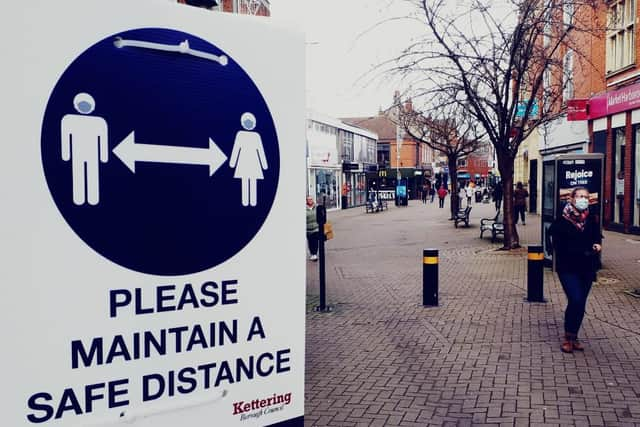Rushden dietitian shares her knowledge on loss of taste and smell after Covid-19
and live on Freeview channel 276
An expert on diet and nutrition has shared her knowledge on the loss of taste or smell after Covid-19.
Dr Mabel Blades of Rushden is a registered dietitian and nutritionist with a PhD in diet and diabetes.
Advertisement
Hide AdAdvertisement
Hide AdShe has her own business, Nutrition and Dietetic Services, after working in the NHS for many years and now does consultancy as well as writing books.


Dr Blades has been sharing her knowledge with the Northants Telegraph in recent months, helping us follow a balanced diet and look after ourselves during the pandemic.
This week she is talking about the loss of taste or smell after Covid-19.
Dr Blades told the Northants Telegraph: "It has become well recognised that symptoms of Covid 19 include a loss of the sense of taste and smell.
Advertisement
Hide AdAdvertisement
Hide Ad"These two senses work together and have long been known to be affected by colds and respiratory infections.
"These senses often return after recovery but with some sufferers of Covid-19 the loss of taste or smell, and sometimes both, persists for several months.
"Loss of the sensations of taste and smell can really affect the enjoyment of food and drink and hence intake.
"One of the items that has been associated with a loss of taste is an inadequate zinc intake.
Advertisement
Hide AdAdvertisement
Hide Ad"From experience this does help some individuals to recover their sense of taste and smell plus is being used by researchers assisting people who have lost these senses.
"Zinc is present in many foods particularly in red meat which provides about a third of the zinc in the diet.
"It is also found in milk, cheese, eggs, shellfish, nuts and peas, beans and lentils.
"Zinc also helps with producing new cells, and is involved in the metabolism of carbohydrate, fat and protein as well as being involved in wound healing and functioning of the
immune system.
Advertisement
Hide AdAdvertisement
Hide Ad"It is well recognised that males need more zinc that females as it is required for male fertility.
"9.5mg a day for men (aged 19 to 64 years) and 7mg a day for women.
"If you do not think you are having enough zinc and a supplement would be helpful, make sure you take this some time apart from supplements such as iron to be effective.
"Also do not take more than 25mg of zinc supplements a day unless advised to by a doctor."
Advertisement
Hide AdAdvertisement
Hide AdDr Blades also advises that for specific advice on diet you should consult your dietitian, doctor, or health professional.
To read Dr Blades' previous article on long Covid, click here.
You can also follow her on Twitter @blades_mabel.